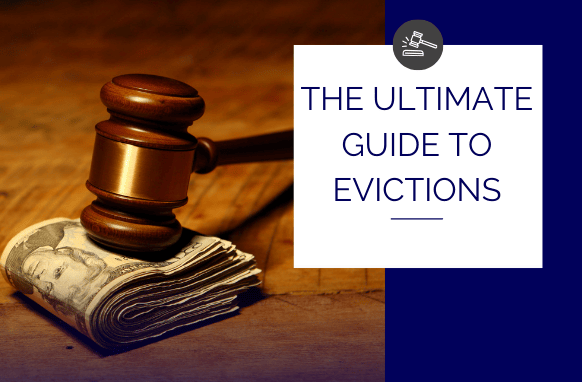If you’re a real estate investor thinking about selling a property or planning ahead for a future sale, it’s essential to understand capital gains taxes. Knowing what to expect can help you make informed decisions that maximize your returns while minimizing your tax burden.

In this guide, we’ll walk you through everything you need to know about investment property taxes and capital gains, specifically tailored for investors in Virginia. You’ll learn how capital gains taxes work, how they differ from other types of taxes, and strategies you can use to reduce what you owe.
📘 Want to make smarter investment decisions? Download our FREE Landlord Guide now!
Understanding Investment Property Taxes & Capital Gains
Before diving into specifics, it’s important to remember that tax laws can vary based on factors such as location, corporate structure, and individual financial situations. While this guide provides a helpful overview, consulting with a tax professional or accountant before making any investment moves is always recommended.
Different Types of Tax for Different Types of Income
Not all income is taxed the same way. The IRS and state tax agencies categorize income into different types, each subject to its own tax rate:
- Earned Income: Wages, salaries, and tips from a job are taxed at regular income tax rates.
- Dividend Income: Stock market investors pay a specific tax rate on dividends earned from investments.
- Capital Gains: When you sell an asset, such as a real estate investment, you may be subject to capital gains taxes, which have different rates than regular income.
Understanding the tax treatment of your income is crucial, especially when investing in real estate. Knowing the potential tax consequences before buying or selling a property can help you structure your investments wisely.
📘 Want more strategies to boost your rental income? Our comprehensive Landlord Guide covers everything you need to know. Download Now!
What Are Capital Gains & How Are They Taxed?
Breaking Down Capital Gains on Real Estate
Let’s go back to the basics:
- You purchase an investment property for a certain amount.
- When you sell the property, you (hopefully) sell it for a higher amount.
- The profit from the sale is called a capital gain, and it is subject to taxation.
For example, if you bought a rental property for $200,000 and later sold it for $275,000, your capital gain would be $75,000.
Short-Term vs. Long-Term Capital Gains
The IRS classifies capital gains into two categories:
- Short-Term Capital Gains – If you sell a property within one year of purchasing it, the gain is taxed as ordinary income. That means you could pay a higher tax rate, depending on your tax bracket.
- Long-Term Capital Gains – If you hold a property for more than one year, the gain is taxed at a lower capital gains tax rate, typically 0%, 15%, or 20%, depending on your taxable income.
This distinction is important because long-term capital gains tax rates are usually lower, which can result in significant tax savings for real estate investors.
Get Your Free Landlord Guide!
Download our comprehensive guide,
Virginia Landlord’s Guide to Evicting Tenants and gain:
✅ Step-by-step instructions
✅ Links to essential forms and resources
✅ Pro tips for a smooth property sale
✅ Clear timelines and next steps

Why Are Capital Gains Taxed Differently?
Capital gains taxes are generally lower than ordinary income taxes for two main reasons:
- Encouraging Investment: Lower capital gains tax rates incentivize people to invest in assets such as real estate, helping stimulate the economy.
- Recognizing Inflation: Since asset values increase over time partly due to inflation, a lower tax rate ensures investors aren’t unfairly penalized.
Understanding these factors can help you take advantage of capital gains tax rates to increase your profits while keeping more money in your pocket.
📘 Ready to learn how to structure lease option agreements to your advantage? Don’t miss out on our FREE Landlord Guide! Download the Guide!
Capital Gains on Investment Properties vs. Primary Residences
It’s important to know that the sale of your primary residence is treated differently from the sale of an investment property under tax law.
Primary Residence Exclusion
If you’ve lived in your home for at least two of the past five years before selling, you may qualify for a capital gains tax exclusion:
- Up to $250,000 of capital gains is tax-free for single filers.
- Up to $500,000 of capital gains is tax-free for married couples filing jointly.
Investment Property Capital Gains
Investment properties do not qualify for this exemption. Any profit from the sale of a rental or vacation property is fully taxable as a capital gain.
📘 Want to ensure you’re maximizing rental returns? Our Landlord Guide offers expert tips and actionable insights. Download for Free!
Strategies to Reduce Capital Gains Taxes on Investment Properties
1. Utilize the 1031 Exchange
A 1031 exchange allows investors to defer capital gains taxes by reinvesting the proceeds from a property sale into a like-kind property. This is a powerful strategy for building long-term wealth in real estate.
2. Increase Your Property’s Cost Basis
Your capital gain is calculated as:
Sale Price – Adjusted Cost Basis = Capital Gain
The cost basis includes:
- The original purchase price
- Major improvements and renovations
- Closing costs and fees
By keeping good records and adding eligible improvements, you can increase your property’s cost basis, reducing your taxable gain.
3. Convert an Investment Property into a Primary Residence
Living in an investment property for at least two years before selling can allow you to qualify for the primary residence capital gains exclusion. However, specific rules apply, so consult with a tax professional.
📘 Take control of your real estate investments with expert guidance. Ready to get started? Schedule a Free Consultation!
Final Thoughts: Be Smart About Capital Gains Taxes
Real estate investing can be highly profitable, but understanding investment property taxes and capital gains is key to maximizing your returns.
By holding onto properties for over a year, using a 1031 exchange, and leveraging tax deductions, you can significantly reduce your tax liability and keep more of your hard-earned money.
Since every investor’s situation is unique, speaking with a qualified accountant or tax attorney is the best way to develop a strategy that works for you.
Still have questions? Let’s chat! Call Virginia Cash Home Buyer at (757) 244-9956 for a free, no-pressure consultation.
Ready to maximize your real estate profits? Download Our Free Landlord Guide Now!
Get Your Free Landlord Guide!
Download our comprehensive guide,
Virginia Landlord’s Guide to Evicting Tenants and gain:
✅ Step-by-step instructions
✅ Links to essential forms and resources
✅ Pro tips for a smooth property sale
✅ Clear timelines and next steps

